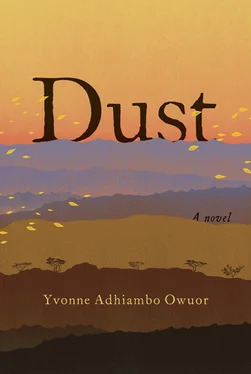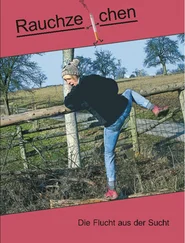Over radio chatter, the Trader reaches over and readjusts the seams of the d’abeela ’s turban.
“Sit. We are ravens ,” the Trader explains. “We pluck fallen color. We barter. With dreams, incense, secrets, animals, and stolen sunsets.” The Trader plucks out a small sealed bag from inside his robe and counts out eight beans. “Ka-ha-wa?”
The d’abeela offers him a two-tooth partial grin.
They chew beans.
The Trader says, “ We are bees. We touch two million scattered moments, reaping the small nectar of things .”
The day passes over them.
From the back of the d’abeela ’s throat a harsh purging sound. He spits out phlegm, mucus, and ugliness. “ We are stones .” The old man stirs and twists his neck to contemplate the Trader.
No chattering radio now. The Trader sniffs the breeze. A wind lumbers past like an ancient wizard. They chew beans. The Trader says, “ We taste sweet smoke inside bitterness .”
They chew coffee. The Trader speaks because he must, and because an unshared story can break a heart that carries it alone for too long:
Eleven years ago.
“The drought,” the d’abeela says.
“The drought,” the Trader confirms.
Ceaseless dryness, as if there were no God. Nine half-moons of waterlessness. Even the camels died. It was a bad time. The Trader, who was still answering to the name Zaman, had left his wife, mistress, children, and suffering livestock at Hurran Hura to go for water, identify pastures, and obtain help from other supportive clans. Three weeks later, outside Kargi, he received two messages, which had been passed down from trading post to watering hole to trading post. First his fickle mistress, Rehana, had seduced a visiting Malaysian prospector and, in the thrall of new love, had disappeared from the district with him. She had combined her greetings and goodbye and conveyed them through a stranger. Second, his wife and his children were now on their way to Kargi. Irritation. His wife was an insecure nag. They spent their time together raging about one or another of his many misdeeds. Yet her fragile beauty still made him sing, and he could try to summon down the best stars for her. And when he tried, she would laugh like a chime caught in a soft wind.
The children must be exhausted after a long walk.
He raged.
Women. Insensible camels.
He shook himself and readied to meet them.
Zaman approached the town center, now milling with escapees from the drought, afflicted by empty eyes and potbellied fragility. He searched for his family. He found them gathered around a stripped-down tree.
All his life and its hopes collapsed there. He crawled over and touched the gaunt, desiccated frames that were already disintegrating. They lay wrapped and small in the garish colors of the Somali cloth he traded with. A tide of fury at the yellow-red-orange and blues. He smelled death. Saw vultures and bambaloona waiting in trees.
“Biche naisi,” moaned his wife. Water, please.
“Yes. Yes. Yes.”
And he had run.
Run thirty kilometers.
Run as if a hungry lion were at his heels.
The watering holes were stink ponds, filled with green poison.
He ran another twelve kilometers to the beat of Biche naisi . He flagged down a lorry carrying fluorspar. The driver shared a drop of water with him. He promised the man a milk cow so he could borrow a mid-sized round yellow plastic container. At Kalama he jumped down, fought off livestock and other herders at a green-water oasis, groaning, “Biche naisi,” and because he looked crazed and unkempt they let him scoop the sludge.
He was trudging back when he heard the sound of a car charging along the track.
The Jacobses’ four by four, Light of the Nations emblazoned in pale blue. It would have scuttled past him if he had not thrown himself across its path. Scrunch-on-the-ground brakes. All six Jacobses stared at Zaman, who waved at them from the front. The cacophony of an amplified car horn and Pastor Jacobs’s big red face leaned out of the window as he screamed at Zaman in a twang that infused words with curves and elongated vowels. “Heathen, in God’s name, what do you intend?”
Zaman pleaded. His wife and children needed the water he carried. He had lifted the container for Pastor Jacobs to see. In the name of God, he needed a ride to Kargi. In the name of God. It was less than a day away. In the name of God, Whom they both served.
The pastor’s nasal prodding: “Son, are you Bible-believin’ and saved? Do you serve the living God, the true God, the only God?”
“Yes, yes, yes.”
“Do you know our Lord as your personal Savior?”
“Yes.”
“John 3:16?”
“What, sir?”
“John 3:16? Confirm your faith, son.”
“The Lord is my … uh … shepherd in … uh … heaven?”
Pastor Jacobs’s pale wife leaned over to the driver’s side. “Tch-tch-tch,” she said, wagging a finger.
Pastor Jacobs withdrew his face from the window, his mouth firmed up. He put the car into gear and sped off, gunning the engine as Zaman raced after them. Zaman threw the jerrican at them with all his strength. The lid burst open, and the foul water spilled out to the ground. He heard the earth quaffing down his family’s life, and then he wailed.
Eeeeeeeeoiiiiaaaa!
Zaman stretched out his arms, fell forward, lay on the ground, his face and arms bruised. After half an hour, with ants clinging to his arms, he wiped his face, cleaned the dust off his clothes, and walked back to the foul oasis with the yellow can. The people saw him; they said nothing. They watched him fill the container again. He restarted his journey to Kargi on foot. Got there in the late evening of the day after that. Remarkable speed.
A wheezing part-time imam approached Zaman as he shuffled to the tree where he had last seen his family. He stopped.
“God be praised,” exhorted the imam.
“Yes.”
And he told Zaman the truth. In keeping with burial customs, all bodies were buried just before sunset. The prayer man said, “It is God’s will.” He told Zaman that they would all meet in paradise, thanks be to God. He said they were in a better place.
Zaman heard the words.
He said nothing in reply.
Nothing.
Had not spoken about the events to another human being until now.
Eleven years later, the Jacobses were still plowing seeds of light across unheeding desert people of Kenya. In keeping with the times, they had also become spotters of terrorists and pirates. Their medical center was a web, a rich pond for mass baptisms and extraordinary renditions.
Close to dusk. The Trader gets up. He is trundling away when the d’abeela calls after him, “ We are ravens …” the Trader gurgles. The voices on the radio tell him about the chaos that followed the murder of a Pakistani woman leader.
OLD COFFEE AND A CONVERSATION IN THE WUOTH OGIK BOMA —two men and a cramped eavesdropper. Galgalu had taken to lying under the sky so his nightmares had greater distances to cover before they reached him. Galgalu had seen that the Trader’s eyes were cold and his voice like breaking glass. His spirit shivered as the man spoke.
The Trader was saying, “In the places of water, where stories are left to be found, long-ago tales of a man named Hugh Bolton linger. It is said, one day he left. Was he looking for the house of red rain?”
Nyipir squirms, blows his nose, and allows himself a grunt.
The Trader says, “I feel there’s something you need.”
“Nothing.”
“Anything?”
Читать дальше











